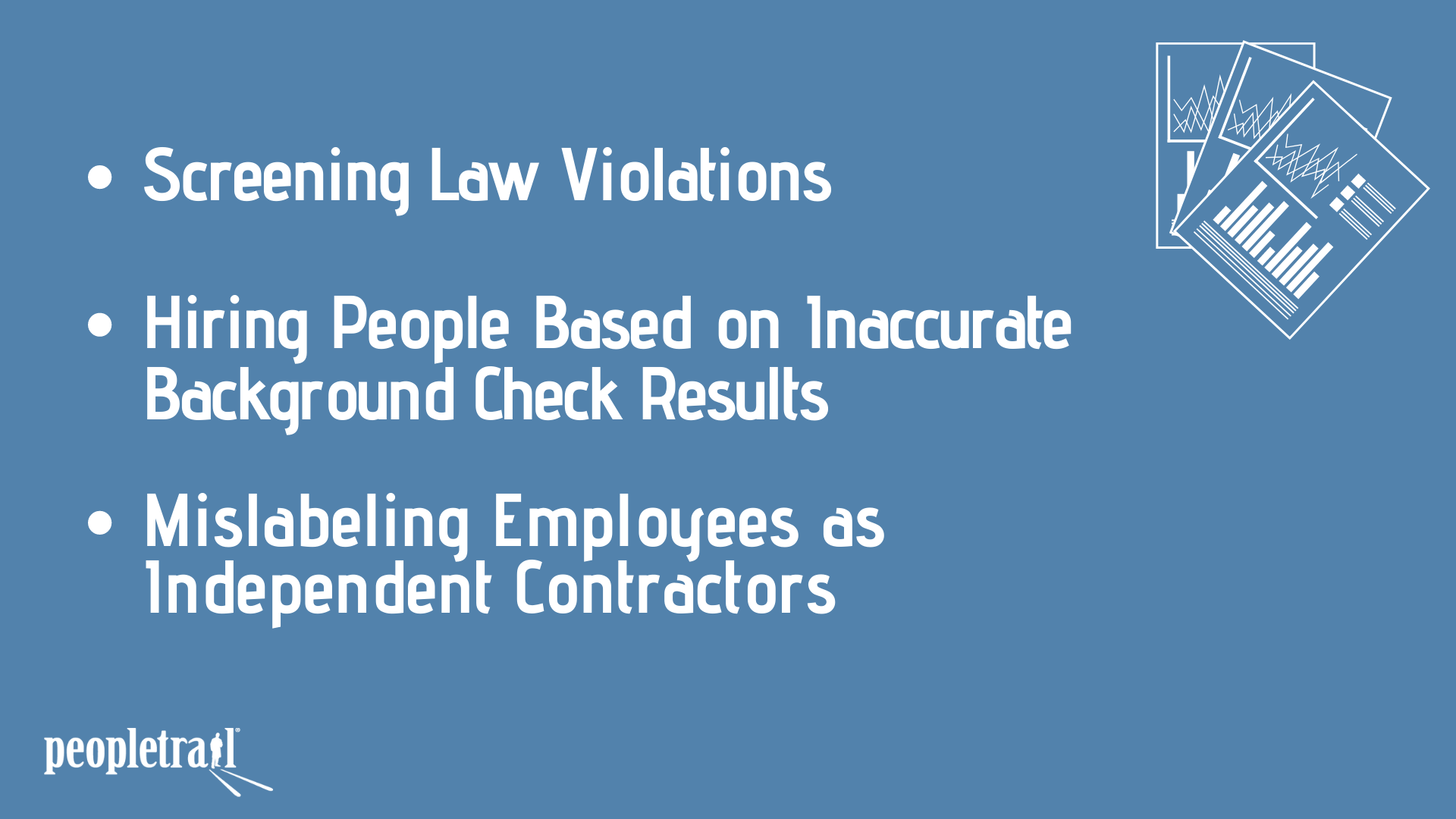
How Can We Avoid Legal Traps in Candidate Screening? Conducting a background check is perhaps the best way to make sure that you are hiring the right person for the right job. At the same time, you need to be aware of the legality of screening potential employees and make sure that you do not violate any employment law or anti-discrimination law in the process.
In 2012, Pepsi paid $3.13 million in settlement for violating the Civil Rights Act of 1964. The company conducted a comprehensive background check of all the applicants and rejected anyone who had been arrested, even if they had not been convicted of any crime.

Since the vast majority of people who were denied employment happened to be African Americans, the company was accused of racial discrimination, as a result of which it had to pay $3.13 million in a settlement.
In this article, we take a look at the three common legal traps in candidate screening that employers often fall into while conducting a background check on potential employees.
1. Screening Law Violations
As an employer, it is essential for you to be aware of the laws at the federal, state, and local level which governs the process of screening potential employees. Most employers are familiar with federal and state laws pertaining to background checks. Not many, however, pay attention to the regulations that are specific to their city or town.
It is, needless to say, a big mistake, as any violation on your part can expose you to the risk of third-party lawsuits or class action lawsuits. So, make sure that your screening process is not in violation of federal, state, and local background check laws and violations.
2. Hiring People Based on Inaccurate Background Check Results
In September 2019, a restaurant owner in Las Vegas was stabbed by a DoorDash driver, who acted in a hostile manner without any provocation on the restaurant owner’s part. It turned out that the driver was a convicted felon with a documented history of mental illness. As a result, DoorDash was sued by the restaurant owner for negligence hiring practices.
The lesson to be learned here is that background check results can be inaccurate at times. A faulty background check can lead you to hire someone who is not qualified for the job or reject someone who is perfectly qualified for the job. In both cases, you are at risk of getting sued by someone.
To avoid this problem, you need to work with a background check company that you can trust. Also, you can send all the applicants a copy of their background check results and give them a chance to dispute incorrect information.
3. Mislabeling Employees as Independent Contractors
Mislabeling an employee as an independent contractor is a violation of employment laws and can land you in legal trouble. If you violate federal, state, or local background check laws on top of that, the consequences can be serious.
To avoid this problem, you should make sure that your definition of an independent contractor matches the IRS definition. You should also try to find out if your state and local laws impose any restrictions on who can be classified as an independent contractor. If you are still not sure, you can consult an employment law attorney.
Avoiding Legal Traps In Candidate Screening on Background Checks is critical.
At the end of the day, it is your duty as an employer to be aware of the laws, regulations, and guidelines pertaining to background checks and make sure that your screening process is not in violation of any of them. It is the best way to ensure that you hire the right people without inviting any legal trouble.










